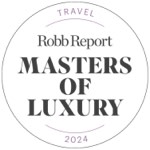Webinar #1 - The Power of Connection, Pulling Together While Staying Apart
I’ve always been a firm believer in the enormous power of our collective will – in that when we as a global community achieve consensus on what is important – change is inevitable. Of course, there is no better illustration of this than the current Covid-19 crisis. To be clear, I’m not talking about a systematic global reaction to the pandemic but deeper change – the kind that affects our hearts, minds and value systems. My most fervent hope is that this dark period will be remembered as a moment of truth – a positive watershed if you will, in the history of wildlife and humanity.
Yesterday’s webinar ‘The Power of Pulling Together While Staying Apart’ and the conversation that followed, certainly confirmed this for me. I was joined by Peter Knights, the CEO and Founder of WildAid, an international wildlife conservation organisation focused on reducing the demand for wildlife products; Dr Ian McCallum, psychiatrist, poet, author and our very own wilderness guide; and Pat Mitchell, a media powerhouse, author and long-time advocate for Africa – who so graciously moderated the conversation for us.
Our mission was to discuss a way forward from the precipice upon which we find ourselves, for the recent coronavirus pandemic proves the terrible truth that live animal markets and the related trade are an explosive threat to public health and the global economy. As Dr. Ian McCallum so eloquently put it: ‘The world is being held to ransom by a microbe’. Who could have imagined that?
Asking ourselves how we got here is a critical step in our collective understanding and acceptance of our far-reaching role in it. ‘The days of pretending that we don’t know, or that it has nothing whatsoever to do with us are over,’ said Ian. ‘Human indifference is toxic. So too is human entitlement. This virus is a good reminder of how significant the little things are. Never again should we underestimate the importance and the power of that which you believe is smaller and therefore less important than you.’ It was enough to make me weep for it reveals so much about the arrogance of the era in which we live, with the ongoing denial of climate change yet another example. Ian also reminded us that this global emergency has not come without warning, from St Francis of Assisi to Walt Whitman and Henry Thoreau – a long line of scientists and environmentalists have all delivered irrefutable evidence in their calls for a greater sense of environmental and social responsibility.
For Peter, whose incredible work with WildAid spans thirty years, says he can’t remember a time when there wasn’t the threat of a Zoonotic disease. He recalls the outbreak of monkeypox in the US in the early 2000’s, linked to imported Gambian rats that were held in close proximity to prairie dogs, both being sold as pets. This was followed soon after by the SARS virus, the first global pandemic of the 21st century that was linked to civet cats bred for human consumption. And yet, here we are 20 years later – uncontrite as ever – as yet another novel zoonotic virus takes hold, this time with catastrophic circumstances.
‘With 50% of pathogens to humans originating in animals, it stands to reason that the most likely source of a new disease would be exotic animals from the wild,’ adds Peter. And of course, none of these things happen in isolation – habitat loss due to rampant deforestation, the breeding of wild animals leading to bio-diversity decline in China and South-East Asia and many more, conspire to create the kinds of perfect storms that have lethal and lasting consequences for human health and the global economy.
That we need to re-examine our priorities is without question for this isn’t about animals anymore, it’s about us. ‘Humans are the apex predator but we are not the apex of creation,’ adds Ian. Now is a time for all individuals to stand up and put their voices together for the voiceless and insist that there are some things that are simply not for sale.’ So, we not only need to hold our governments accountable but ourselves too, as we actively protect our wildlife and wild spaces.
We are at a point in our civilization where we need to ask ourselves what would we be without nature. Ian’s belief that we have become ecologically illiterate at our own expense is the hard truth. ‘I have watched our language change,’ he says. ‘We talk about nature but we are nature. We are in it and it is within us. We talk about sunrise and sunset but that is really the earth setting and the earth rising.’
As a company, ROAR AFRICA has long heeded this call to reconnect with our inner nature and the deep emotional connection that our guests feel when they are in Africa has proved this time and again. We have consistently used this in the creation of those singular travel experiences that cultivate and create global advocates for the wild. That we will continue to do that, is without question. So I implore you, let’s not underestimate the power of our shared emotions at this time. Let’s continue the conversation and make sure that this crisis shapes our world for the better. For as Ian said: ‘There is a difference between optimism and hope. Optimism is thinking that things will be fine, without really knowing it. Hope is about doing the right thing.’



